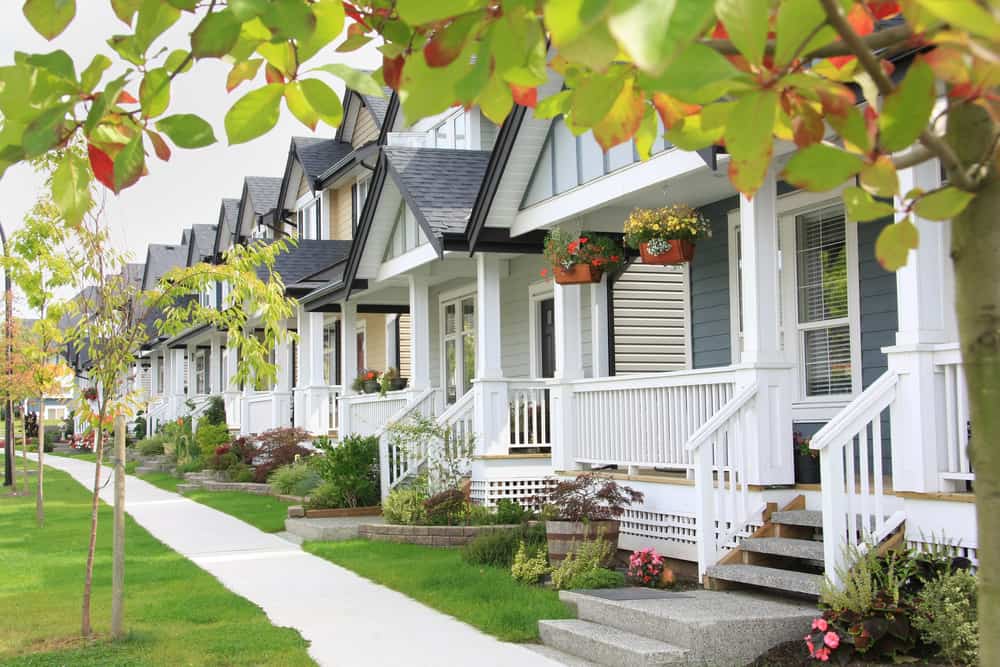Diving into the world of real estate can be both exhilarating and overwhelming, especially when faced with terms like “HOA.” Whether you’re a first-time homebuyer, an investor, or just curious about the dynamics of community living, you’re not alone in feeling daunted. Understanding the intricacies of terms like these can be the difference between confusion and confident decision-making. So let’s unravel the mystery of the HOA meaning together and explore how it can shape your homeownership experience.
On the FortuneBuilders Real Estate Investing Show, JD and Dan explain the differences an HOA property may have compared to traditional homes, as well as the strategies CT Homes used to successfully complete the deal. Listen to the podcast here:
HOA Definition
What Does HOA Stand For?
The HOA meaning is straightforward: An HOA, or Homeowners Association, is an organization in a subdivision, planned community, or condominium that makes and enforces rules for the properties and their residents. Those who purchase property within an HOA’s jurisdiction automatically become members and are required to pay dues, known as HOA fees.
Why Do HOAs Exist?
Homeowners associations are typically formed by the same real estate developer who is responsible for the community in the first place; it’s a way for them to keep tabs on the community and ensure it continues to flourish. The primary role of an HOA is to maintain and improve the shared spaces in their communities. They help ensure that the community looks its best and functions smoothly. For instance, if you’ve ever driven through a neighborhood and noticed all the houses are painted in harmonious colors, that’s likely the work of an HOA.
[ Thinking about investing in real estate? Register to attend a FREE online real estate class and learn how to get started investing in real estate. ]

Common Responsibilities of an HOA
HOAs are responsible for a range of duties, including:
-
Enforcing Community Rules and Bylaws: Each HOA has its set of rules and regulations. Otherwise known as “covenants, conditions, and restrictions” (CC&Rs), said rules are applied to any new homeowners within the community. These might include restrictions on house colors, the type of landscaping allowed, or the number of pets a homeowner can have.
-
Collecting Dues: To fund their operations and maintenance tasks, HOAs collect monthly or yearly dues from residents.
-
Maintenance: HOAs take care of the maintenance of common areas such as parks, swimming pools, and clubhouses.
-
Community Events: Many HOAs organize community events to foster a sense of community among residents.
What Are The Pros & Cons Of An HOA
By now, you are likely starting to pick up on the various pros and cons associated with homeowners association requirements. Because every homeowners association is slightly different, it can be hard to consider whether they are universally helpful or hurtful. Additionally, the impact of an HOA on your bottom line will differ based on the deal at hand. Before buying, renting, or investing in a property within an HOA’s jurisdiction, I urge you to consider each of the pros and cons as they apply to your specific property.
Pros
Living in an HOA-governed neighborhood often means access to shared amenities, such as pools, fitness centers, and clubhouses. The presence of an HOA generally helps to maintain property values, offering a sense of community and consistency. Joining an HOA community can provide a structure that many homeowners find well worth the work.
-
Community Aesthetics and Property Values: One of the significant advantages of living in an HOA community is that there’s a common standard for property maintenance and aesthetics. This consistency can help maintain or even increase the property values in the area.
-
Shared Amenities: Many HOA communities offer residents access to shared amenities. This can range from a simple playground or park to elaborate fitness centers, clubhouses, and community pools.
-
Dispute Mediation: If disagreements arise between neighbors, the HOA can serve as a mediator, helping to resolve issues in a fair and just manner.
Cons
While there are benefits to living in an HOA community, potential homeowners should also be aware of possible drawbacks:
-
Property Limitations: Some people find HOA rules regarding property changes or additions restrictive.
-
Conflict Potentials: There’s always a possibility of running into disagreements with the HOA board or neighbors.
-
Additional Costs: HOAs might raise their fees, or there may be special assessments for unexpected expenses.
HOA Fees and What They Cover
HOA Fee Meaning
The term “HOA fee” refers to the regular dues homeowners are required to pay to the homeowners association once they purchase a property within its jurisdiction. These fees are typically collected on a monthly or yearly basis. The HOA fee meaning is crucial to understand, as these dues directly fund the operations, maintenance, and various amenities that the HOA oversees. By paying these fees, homeowners contribute to the upkeep of common areas, community amenities, and other shared services that benefit the entire community.
Average Cost of HOA Fees
The fees can vary widely depending on the amenities offered and the region where the property is located. On average, one can expect to pay anywhere from $100 to $700 per month in HOA fees, with some luxury communities demanding even higher fees. HOA fees are one of a few expenses that homeowners pay that renters don’t.
Allocation of Funds
Understanding where your HOA fees go is crucial. Typically, these fees are allocated towards:
-
Maintenance of common areas.
-
Amenities like pools or clubhouses.
-
Landscaping and community improvements.
[ Learning how to invest in real estate doesn’t have to be hard! Our online real estate investing class has everything you need to shorten the learning curve and start investing in real estate in your area. ]

HOA FAQs
There are numerous factors to consider before buying a property under the jurisdiction of an HOA. Whether you are an investor or aspiring homeowner, read through the following frequently asked questions to learn more:
Are HOA rules legally binding?
Absolutely, the rules established by an HOA, often referred to as Covenants, Conditions, and Restrictions (CC&Rs), are indeed legally binding. When you purchase a home within an HOA community, you inherently agree to adhere to these stipulated rules and regulations. These rules are in place to maintain a certain standard of living and aesthetic within the community and can cover various aspects, from landscaping to exterior paint colors. Non-compliance with HOA rules can result in penalties, which may include fines, forced compliance, or even litigation in certain extreme circumstances. It’s pivotal to review and understand the HOA’s CC&Rs thoroughly before purchasing a property within its jurisdiction to ensure you can comply comfortably.
Can I opt-out of an HOA after buying a property within its jurisdiction?
Generally, opting out of an HOA after purchasing a property within its confines is not a feasible option. Membership in the HOA is intrinsically tied to the property itself. When you buy a home within an HOA, you inherently agree to its rules and to remain a member for the duration of your time living there. However, if you find certain rules or decisions of the HOA to be disagreeable, you can typically get involved in the governance of the HOA. This might involve participating in meetings, voicing your concerns, or even running for a position on the board to influence change within the community.
What happens if I don’t pay my HOA fees?
Failure to comply with the financial obligations of your HOA can have serious implications. Initially, you may be faced with fines or penalties for late or missed payments. Continued non-payment may result in the HOA placing a lien against your property, which could ultimately lead to foreclosure in some instances. It’s crucial to understand that paying HOA dues is a legal obligation that comes with owning property in an HOA community. If you’re facing financial difficulties, it’s always advisable to communicate proactively with your HOA, as they may be able to offer payment plans or solutions to assist during challenging periods.
How are HOA board members selected?
HOA board members are commonly elected through a voting process that involves the community’s homeowners. Generally, any member of the HOA is eligible to run for a position on the board, provided they are in good standing (i.e., they adhere to community rules and are up-to-date with their dues). The specific procedures for elections, terms of service, and eligibility criteria should be outlined in the HOA’s bylaws. It is the board members who often make significant decisions regarding the community, such as rule changes, budget allocations, and maintenance projects. Therefore, the selection process is crucial to ensure the community’s needs and values are represented accurately.
Can HOAs be challenged in court?
Yes, HOAs can indeed be challenged in court, though it’s typically seen as a last resort after all other avenues of resolution have been explored. Homeowners may seek legal recourse if they believe the HOA is acting outside its legal bounds or enforcing rules in an unfair or discriminatory manner. Legal challenges might also arise if homeowners believe the HOA is failing to fulfil its duties as outlined in the governing documents. It’s essential to consult with a legal professional who specializes in HOA matters to explore your options and navigate through any potential legal proceedings effectively.
Summary
Understanding the HOA meaning is fundamental for any potential homeowner or real estate investor. Living in an HOA community offers both benefits and challenges. Like any significant decision, the key to success is being well-informed and proactive. Knowing what an HOA is and how it functions can greatly influence your home buying journey, and hopefully, this guide has brought some clarity to the term.
Ready to start taking advantage of the current opportunities in the real estate market?
Click the banner below to take a 90-minute online training class and get started learning how to invest in today’s real estate market!


